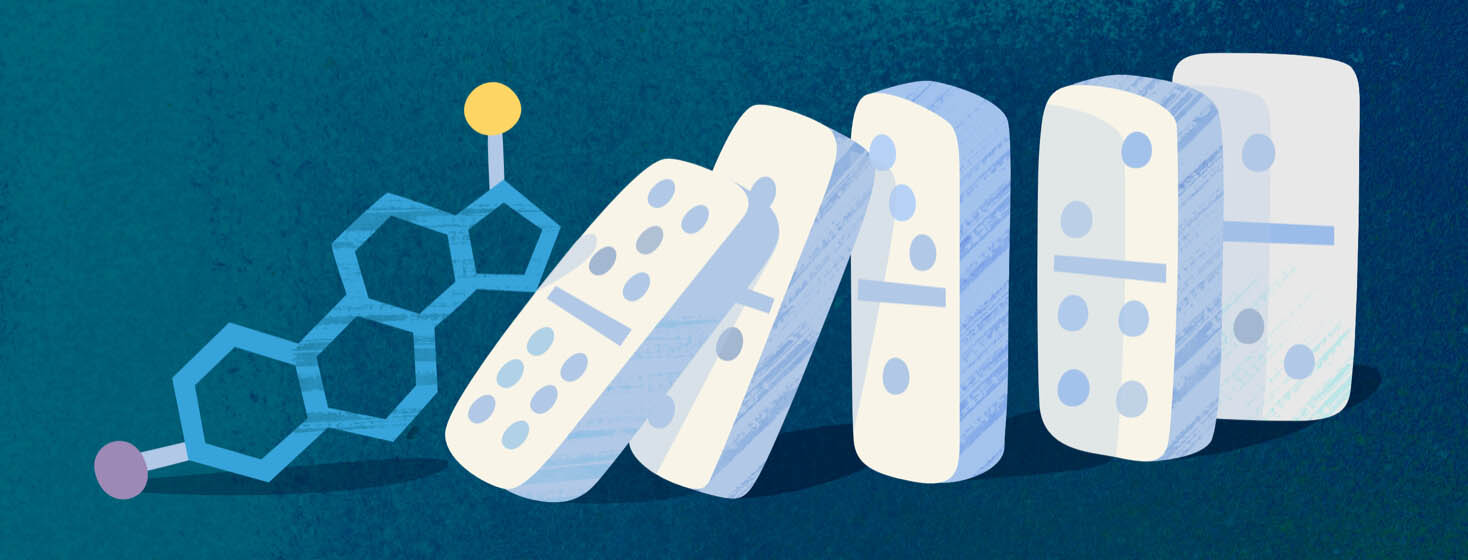Chronic Hives and Your Period: Recognizing a Sex Hormone Allergy
Each month, your menstrual cycle may bring a wave of physical and mental changes. Could one of these changes include chronic hives? Some women get discolored, itchy, swollen welts before their period, signaling a shift in hormones.
Chronic hives can affect anyone, but women tend to get it more often. Women are anywhere from 2 to 4 times more likely than men to develop the disease.1
PMS and your hormones
Premenstrual syndrome (PMS), or the time before your period, often comes with mood swings, bloating, tiredness, acne, and other symptoms. Experts are not sure what causes PMS, but one possible reason is monthly changes to your hormones. These fluctuations seem to go away when you are pregnant or after menopause.2
Changing hormones could also be responsible for a flare-up of chronic hives. To know for sure, track your symptoms. Do you notice a connection between your menstrual cycle and a hives outbreak? If so, your period could be connected to the outbreak.
Chronic hives and hormone allergies
Some women have what is known as a sex hormone allergy. This is when you are easily affected by hormones that control some physical functions like your period. These hormones can set off hives and other allergic reactions. People with a hormone allergy may notice skin changes on their torso, arms, and legs. Less commonly, reactions happen on the face and inside of the mouth.3
Women and girls may be especially sensitive to progesterone and estrogen. These hormones impact sexual, physical, and reproductive growth. And they regulate your period. Progesterone and estrogen increase and decrease at different points of your menstrual cycle.4
It is not clear what causes a sex hormone allergy. One theory is that certain hormones trigger your mast cells to release histamine, the chemical that sparks an allergic reaction. More research is needed to confirm this theory. Another idea is that a woman or girl’s body can handle small amounts of sex hormones. But when your hormone levels increase during your period, your body may fight against the hormones.5
Diagnosing and treating a hormone allergy
A sex hormone allergy is extremely rare. Doctors may misdiagnose it as a different condition like eczema or a drug reaction.
Scientists who study this type of allergy have found that hives and other skin reactions start a few days before your period and heal a few days later. There is no specific test for a hormone allergy, but doctors may confirm it with an allergy skin test. Your doctor could also ask:5,6
- How often do you get hives? Monthly? More often? Less often?
- When do you get hives?
- Is your period regular?
- Do you take birth control pills?
- Has a doctor ever treated you for hives?
- Have you been pregnant? If so, did you notice changes to your hives symptoms?
Treating a hormone allergy focuses on 2 things: suppressing the flow of hormones and soothing itchy, swollen skin. Treatment could include antihistamines, corticosteroids, and birth control pills to balance hormones. Symptoms may also decrease naturally during pregnancy or menopause.5,7

Join the conversation